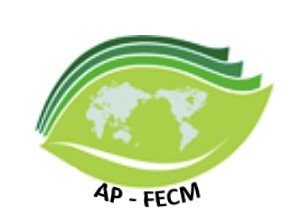
Picture source: UBC Forestry

To engage the AP-FECM Steering Committee in advancing innovation in forestry education in the AP-FECM region and keep our communication regular, the AP-FECM Executive Office (EO) has proposed and coordinated the AP-FECM Online Seminar with the confirmation from the AP-FECM Steering Committee.
This seminar will be organized by each AP-FECM Steering Committee on a rotational basis. The on-duty steering committee is responsible for contacting the speaker and promoting the event within their universities and regions. The invited steering committee can give the talk or recommend one expert to give the talk. EO can help promote the seminars to all AP-FECM members and post them on the AP-FECM website. The seminar will be recorded and posted online.
Seminar time: The first Thursday of each month, can be adjusted to another day if necessary.
Seminar frequency and duration: Once per month, 1 hour each time. 45 min presentation+15 min Q&A is recommended.
Seminar topics: In 2025, our webinar focuses on the theme of innovation and new trends in forestry and forestry education. As a result of rapid climate change, biodiversity loss and new technological advances, the continued importance of forests to humans, and the threats that forests face, the careers of forestry professionals are evolving rapidly, especially in the Asia Pacific region. Higher forestry education in the Asia Pacific region has been evolving rapidly over the past few years to keep up with the evolving trends in the forestry sector and to accommodate the needs of students and society.
Innovation and new trends in forestry or forestry education can be shared in the webinars, for example, new trends in technology in forestry, teaching pedagogy, conceptual developments, paradigm shifts and program and curriculum innovation are all suitable topics for webinars.
Our Next Webinar:
AP-FECM webinar
Title: Brief Introduction on the Production of Wood-based Panels in China and the Discussion on the Cultivation of Talents in the Wood Science and Technology Major

Speaker: Dr. Xuedong Xi
Southwest Forestry University
Time: Thursday. August 28, 2025, 6–7 PM PDT (Vancouver)
Zoom Link: https://ubc.zoom.us/j/69845569579?pwd=5IawVbFyogK4cYEjbQ1AJy0faIxyZP.1
Meeting ID: 698 4556 9579
Passcode: 259423
Abstract:
In the evolving landscape of sustainable manufacturing, the education and training of professionals and technical talents in the wood-based panel industry have never been more critical. This presentation emphasizes the need for a comprehensive re-evaluation of educational programs aimed at equipping future experts with the necessary skills and knowledge to meet the demands of green, low-carbon production practices. Following this focus on education, we will explore the current state of wood-based panel production in China and the various adhesives that are integral to their manufacturing. Additionally, we will discuss the direction of future development for wood-based panel products and their adhesives, highlighting key research areas aligned with the principles of environmental protection and health. By fostering a workforce that is knowledgeable about sustainable practices, we can ensure the industry’s growth while safeguarding our environment.
Profile:
Dr. Xuedong Xi received his doctorate from the University of Lorraine, France, in 2020. He is currently a faculty member at Southwest Forestry University, where his research focuses on wood adhesives and biomass composites. His work encompasses the modification of formaldehyde-based synthetic resin wood adhesives, the development of bio-based and environmentally friendly wood adhesives, and the fabrication of bio-based rigid foam materials. To date, he has published over 100 academic papers and was recognized on the Stanford/Elsevier Top 2% Scientists 2024.
2025 Tentative Schedule
| Seminar time (Vancouver time) | On-duty Steering Committee (Host) | Invited Steering Committee | Speaker | Title |
| 6 PM, February 27, 2025, | AP-FECM Executive Office | Dr. John Innes, Faculty of Forestry, University of British Columbia, Canada | Dr. Orlando Rojas University of British Columbia | Bioinnovation Accelerates Through a Cross-Disciplinary Framework |
| 6 PM, March 06, 2025 | Dr. John Innes | Dr. Antanas Spokevicius, School of Agriculture, Food and Ecosystem Sciences, University of Melbourne, Australia | Dr. Christopher Weston Associate Professor (Forest Eco, Fire & Soils), University of Melbourne | Forestry Education in Australia – Engaging the Forest Sector |
| 7 PM, April 22, 2025 | Dr. Antanas Spokevicius | Dr. Mohammed Al-Amin, Institute of Forestry and Environmental Sciences, Chittagong University, Bangladesh | Dr. Guangyu Wang Associate Dean and Associate Professor, Faculty of Forestry, University of British Columbia | Forest Therapy: Healing Power from Forests — Origin, Theories, Challenges, and Opportunities |
| 7 PM, May 08, 2025 | Dr. Mohammed Al-Amin | Dr. Cristián Bonacić, Department of Ecosystems & The Environment, Pontifical Catholic University of Chile | Prof. Pablo I. Becerra Pontifical Catholic University of Chile | Forestry Education and Professional Practice in Chile |
| 6 PM, June 26, 2025 | Dr. Cristián Bonacić | Dr. Xiong Li, Beijing Forestry University, China | Dr. Juan Shi Beijing Forestry University | The Application of Virtual Simulation and Large Model in Forestry Education in China |
| 6 PM July 29, 2025 | Dr. Juan Shi | Dr. Hao Ren, College of International Education, Nanjing Forestry University, China | Dr. Lin Cao Nanjing Forestry University | Smart Teaching for Forestry Education and Practices in China |
| 6 PM August 28, 2025 | Dr. Lin Cao | Dr. Weibin Wang, Southwest Forestry University, China | Dr. Xuedong Xi Southwest Forestry University | Brief introduction on the production of wood-based panels in China and the discussion on the cultivation of talents in the Wood Science and Technology major |
| TBA in September, 2025 | Dr. Weibin Wang | Dr. Baatarbileg Nachin, National University of Mongolia | ||
| TBA in October, 2025 | Dr. Baatarbileg Nachin | Dr. Jorge Mario Chavez, Faculty of Forestry Sciences, La Molina National Agrarian University, Peru | ||
| TBA in November, 2025 | Dr. Jorge Mario Chavez | Dr. Juan M. Pulhin, Department of Social Forestry and Forest Governance, College of Forestry and Natural Resources, University of Philippines Los Baños, Philippines | ||
| TBA in December, 2025 | Dr. Juan M. Pulhin | Dr. DKNG Pushpakumara, Department of Crop Science, Faculty of Agriculture, University of Peradeniya, Sri Lanka | ||
| TBA in January, 2026 | Dr. DKNG Pushpakumara | Dr. Rachanee Pothitan, Faculty of Forestry, Kasetsart University, Thailand | ||
| TBA in February, 2026 | Dr. Rachanee Pothitan | Dr. Hoang Van Sam, Director of International Cooperation Division, Vietnam National University of Forestry | ||